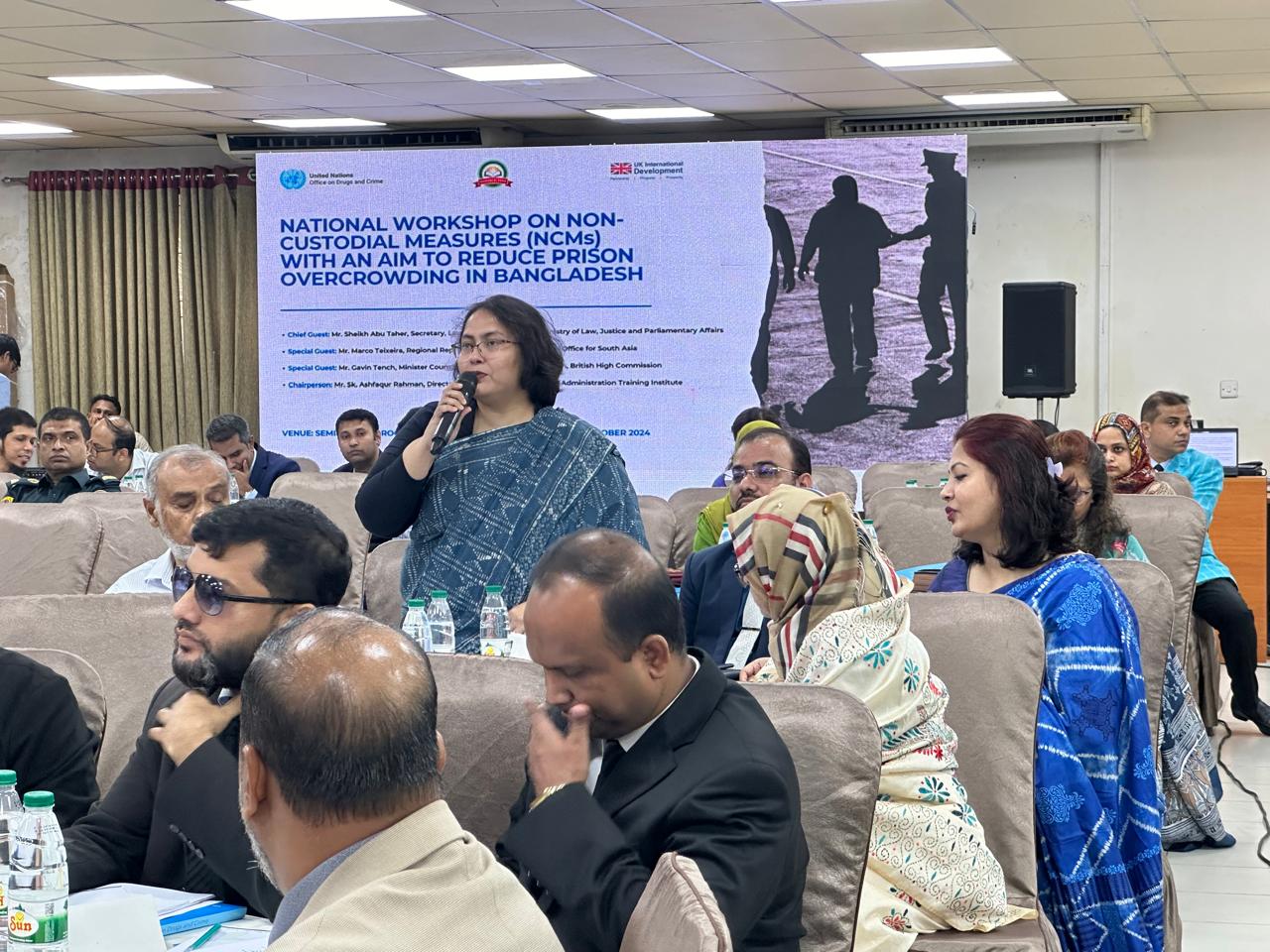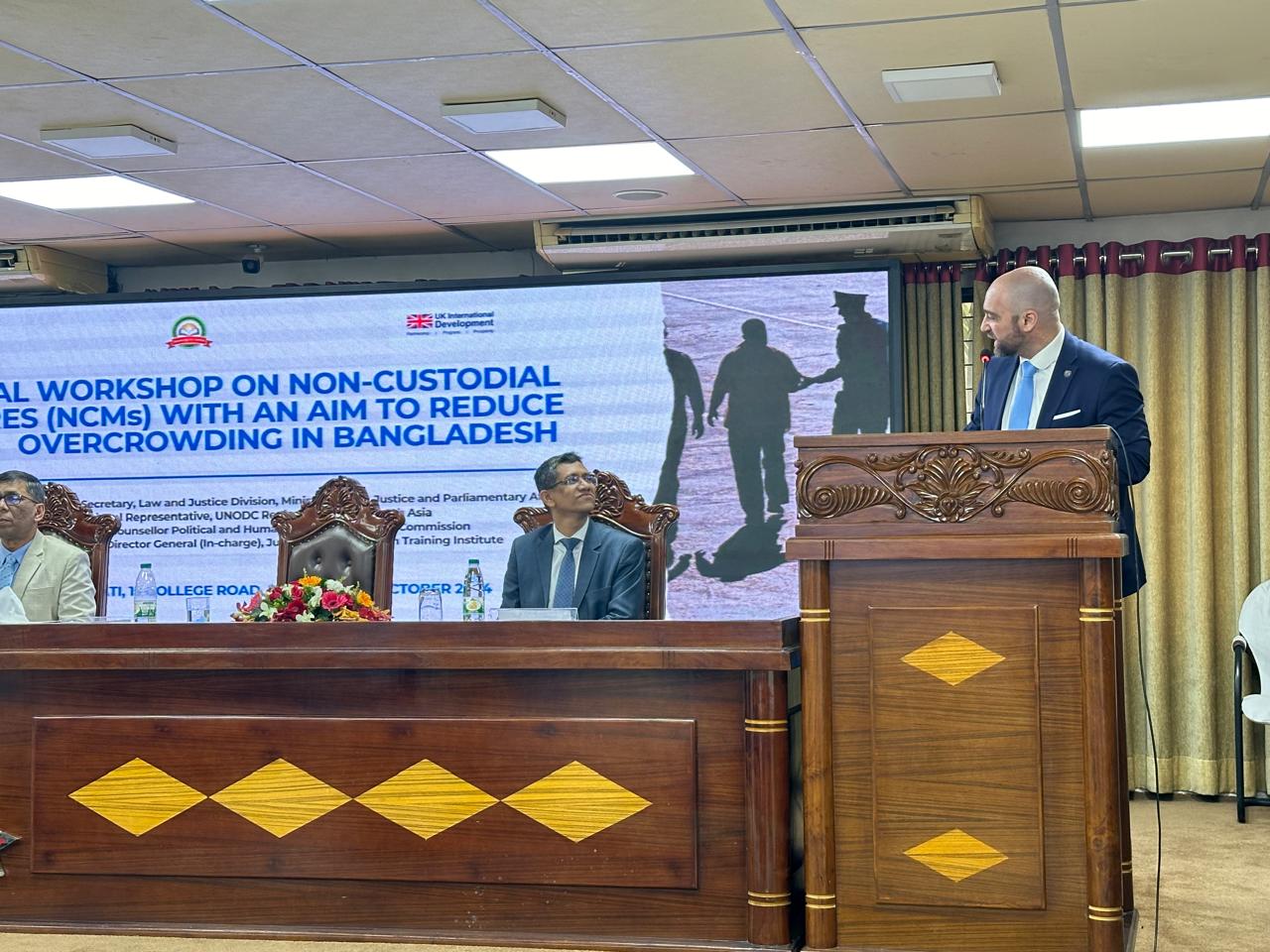Bangladesh: 50 justice professionals gain skills to implement non-custodial measures and address prison overcrowding

Dhaka, Bangladesh/23 October 2024: The adoption of non-custodial measures (NCM) is vital to address the pressing issue of prison overcrowding. Aligned with the Nelson Mandela Rules—international guidelines that advocate for humane treatment and alternatives to incarceration—NCM promote rehabilitation, as opposed to punishment. These measures not only ease the strain on overcrowded facilities but also provide opportunities for offenders to reintegrate into society while maintaining their dignity. Implementing non-custodial measures has the potential to not only reduce overcrowding but also to break the cycle of recidivism.
Recognizing this, the British High Commission Dhaka, Foreign, Commonwealth & Development Office (FCDO) and UNODC collaborated with the Judicial Administration Training Institute (JATI) to build capacities of over 50 criminal justice actors--including judges, public prosecutors, prison officials, probation officers, and policymaker—on Non-Custodial Measures.
Mr. Marco Teixeira, UNODC Regional Representative for South Asia and Mr. Gavin Tench, Minister-Counsellor (Political and Humanitarian) at the British High Commission emphasized the importance of nurturing a justice system that prioritizes rehabilitation and societal reintegration.

Mr. Sheikh Abu Taher, Secretary of the Law and Justice Division highlighted the need for rigorous pre-trial procedures that consider the realities of overcrowding, expressing hope that JATI and UNODC can provide essential training to enhance the capacity of criminal justice actors in this area.
The workshop featured two impactful presentations. Mr. Sven Pfeiffer, Crime Prevention and Criminal Justice Officer at UNODC, outlined the benefits of non-custodial measures, supported by international standards and UNODC’s global and national experiences. He detailed how implementing these measures can alleviate prison populations and foster a more rehabilitative justice framework.
Following his presentation, A. E. M. Ismail Hossain, Director (Administration) and District and Sessions Judge, discussed Bangladesh’s legislative landscape regarding NCM, highlighting current policies and potential alternatives to imprisonment.
Many attendees shared personal experiences and case studies that illustrated the transformative potential of non-custodial measures in their communities. The dialogue underscored a collective understanding of the importance of institutionalizing these measures and building the capacity of criminal justice actors to implement them effectively.
The activity contributed to SDG 16 and SDG 17: https://sdg-tracker.org/
(Supported by the United Kingdom)